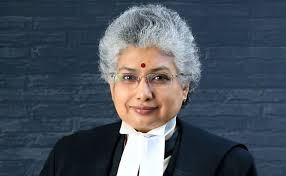Supreme Court Justice BV Nagarathna has emphasized the need for an interministerial forum to handle high-stakes investment arbitration disputes in a more coordinated and strategic manner. Speaking at the inauguration of NLU Delhi’s 1st Post Graduate Certificate Diploma Course on International Commercial and Investment Treaty Arbitration, she suggested that instead of individual ministries addressing such disputes independently, a collaborative approach should be adopted from the outset.
Justice Nagarathna underscored the importance of building consensus at the initial stages of a dispute to develop a unified response. She noted that India has historically relied on foreign law firms for investment arbitration, increasing costs and burdening the exchequer despite the presence of substantial legal talent within the country.
Capacity Building & Reducing Dependence on Foreign Expertise
Highlighting the need for capacity building in international arbitration, she stressed that initiatives like NLU Delhi’s diploma course can equip Indian legal professionals with the expertise to handle complex cross-border disputes. By reducing reliance on foreign legal counsel, India can cut costs and develop a more self-sufficient arbitration framework.
India’s Investment Treaty Landscape & Reforms
Justice Nagarathna traced India’s Bilateral Investment Treaty (BIT) evolution, starting from the 1994 UK-India BIT to present-day reforms, including the 2016 Model BIT and the termination of older treaties. She emphasized India’s proactive measures, such as issuing Joint Interpretative Statements with nations like Bangladesh, Colombia, and Mauritius, to prevent broad tribunal interpretations.
Balancing Investor Rights & Sovereign Interests
Raising concerns over foreign investor claims challenging public interest policies, she cited cases like Philip Morris v. Australia (tobacco regulations) and Vattenfall v. Germany (nuclear energy phase-out). She argued that these disputes highlight the legitimacy concerns within the ISDS (Investor-State Dispute Settlement) system, underscoring the need for a balanced approach that safeguards sovereign interests.
Judicial Training & Future Strategy
Justice Nagarathna recommended that Chief Justices of High Courts nominate judges for specialized arbitration training to enhance adjudication of investment disputes. She urged the legal community to view past arbitration rulings, such as the White Industries case, as lessons in evolving international dispute resolution.
Concluding her address, she congratulated NLU Delhi and all stakeholders for launching the program, expressing confidence that such initiatives would strengthen India’s legal framework in international investment arbitration.



